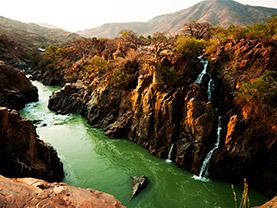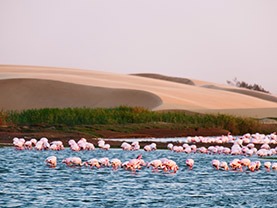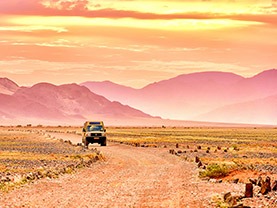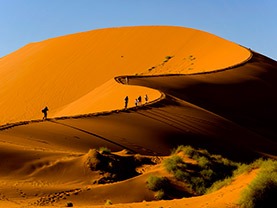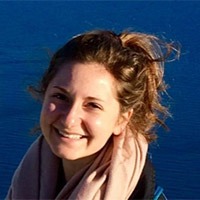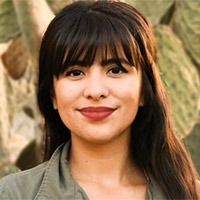
Desert Ecology and Conservation Biology
Multi-city, Namibia
Program Facts
Program Type: UA Faculty-led
Credit Type: UA Direct Credit
Level of Study: Graduate , Undergraduate
GPA: 2.5
Class Eligibility: Freshman , Graduate , Junior , Senior , Sophomore
Language of Instruction: English
Program Open To: UA and Non-UA Students
Coordinator: David Wray
Explore Desert Ecology and Conservation Biology
This program provides an opportunity to conduct hands-on field experience while learning about different ecosystems, their conservation status and management options within the Namibian context. Students experience Namibia’s extraordinary natural beauty by visiting field research stations, reserves, national parks and conservation organizations.
This six-week field program is designed to introduce students to one of the world’s oldest deserts, the Namib, and to arid and semiarid biotopes on the African continent. Students will gain hands-on field experience in conservation in three parts:
Introduction and Orientation Seminar - The presentation of student papers on general aspects of Namibian fauna, flora and ecology as well as geography, geology and history. Representatives of the government, the university and conservation Non-government Organizations (NGO) will be invited for seminar presentations or visited at their respective institutions to learn about current issues in research and conservation.
Field Work - Participants will actively engage in conservation at one location preferably in co-operation with a major institution, NGO, or the government.
Field trips - Students will visit field research stations, reserves, national parks and conservation projects in various locations of Namibia to learn about different ecosystems, their conservation status and management options.
*Itinerary subject to change without notice
Participants earn 6 upper division or graduate units in the following:
RNR 495F/595F Conservation Biology (6 units)
Faculty
Hans- Werner Herrmann, Ph.D.: conducts herpetological and conservation research worldwide with a focus on Africa.
Multi-City, Namibia
Namibia is famous for its Namib desert and National Parks, which possess among the most striking African ecosystems on the continent. Charismatic African megafauna can be observed as well as large numbers of birds, reptiles and some amphibians. Botanically, Namibia offers an enormous variety of succulent plants typical for African arid lands.
Participants will visit the true coastal Namib desert and a cline of arid and semiarid habitats which extend from the west (coast) to the east (inland) and experience the change of climate and landscape firsthand. Students will also travel to the enigmatic waterfalls along the Kunene river which are situated in typical Mopane savanna.
Namibia has one of the best developed infrastructures for tourism in Africa and has a large number of campgrounds and good roads. A stable political situation and long established nature conservation programs allow visitors to fully experience African ecosystems, as well as the local people and their cultures.
Good to Know:
LGBTQ+ Equality Index rating: Namibia rates 39/100 (with 100 being the most equal) on Equaldex’s LGBTQ+ Equality Index.
Global Peace Index rating: Namibia ranks 56/163 in the Global Peace Index. The lower the score, the more peaceful the country.
Languages spoken: English, Afrikaans
Participants in this field-based program will be in shared tents on developed campgrounds and in natural settings.
Due to the remoteness of some areas, average physical condition is required.
Request More Information
Please enter your contact information and a member of the Study Abroad team will contact you.



